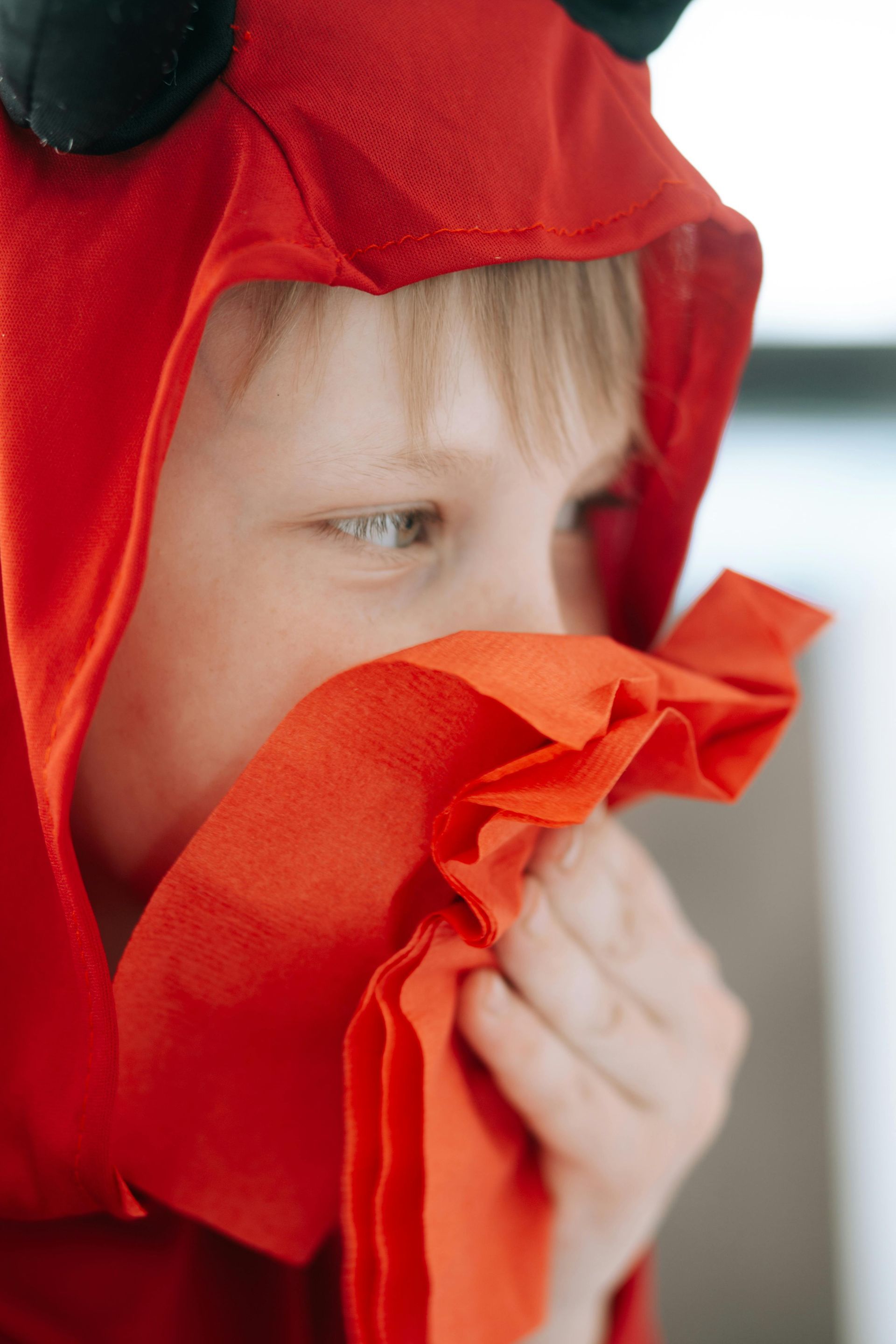PERTUSSIS
Pertussis, commonly known as whooping cough, is an infectious disease caused by the bacterium Bordetella pertussis. This highly contagious respiratory illness is characterized by severe coughing fits that can make it difficult to breathe, potentially leading to a distinctive "whooping" sound as individuals gasp for air as they rapidly inhale trying to refill their air hungry lungs. Historically, pertussis has been a major cause of illness in children until widespread immunization efforts began in the mid-20th century, significantly reducing its incidence.
Pertussis infection in humans begins when the Bordetella pertussis bacteria attach to the cilia of the upper respiratory tract and produce toxins that damage these tissues and cause inflammation. This results in mild cold-like symptoms in the initial stages, then the disease progress- es to more severe coughing episodes. Pertussis manifests in three stages. The first stage, known as the catarrhal stage, lasts about 1-2 weeks and is marked by mild symptoms similar to those of a common cold, such as runny nose, low-grade fever, and mild cough.
During the second or paroxysmal stage, which lasts 1-6 weeks, the classic symptoms of pertussis emerge: intense and frequent coughing fits followed by the "whooping" sound. Finally, the convalescent stage can last several weeks to months, where symptoms gradually diminish, although coughing spells can reoccur or persist.
Diagnosis of pertussis often involves a combination of medical history assessment, physical examination, and laboratory tests such as a nasopharyngeal swab to detect B. pertussis. Early diagnosis is important for managing the disease's progression and reducing its spread. Treatment primarily involves antibiotic therapy such as azithromycin, which is most effective when initiated in the early stages, although it may serve to limit transmission in later stages.
Due to the highly contagious nature of pertussis, treating close contacts of an infected individual is needed to prevent transmission. Prophylactic antibiotics may be recommended for family members and others in close contact, particularly if they are at high risk or in environments like schools or daycares.
Vaccination is the most effective means of preventing pertussis. The DTaP vaccine (diphtheria, tetanus, and acellular pertussis) is given to infants and young children, while the Tdap booster is recommended for older children, adolescents, and adults to maintain immunity. Pregnant women are also advised to receive the Tdap vaccine in the third trimester to protect newborns until they can receive their own vaccinations. Continuing to adhere to vaccination schedules significantly reduces the incidence and severity of outbreaks.
If your child is experiencing severe coughing fits, it's important to come in for a regular office visit. Testing and treatment may be necessary. If your child is diagnosed with pertussis, it is important to treat the entire family to prevent the spread of infection. We can provide prescriptions for your other children. Additionally, you'll need to consult your own physician to obtain a prescription for yourself.


